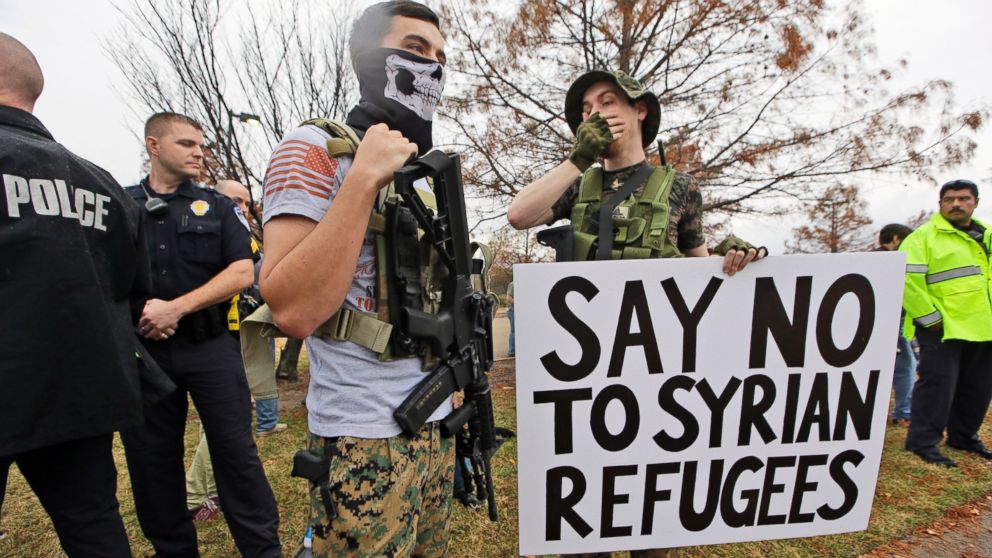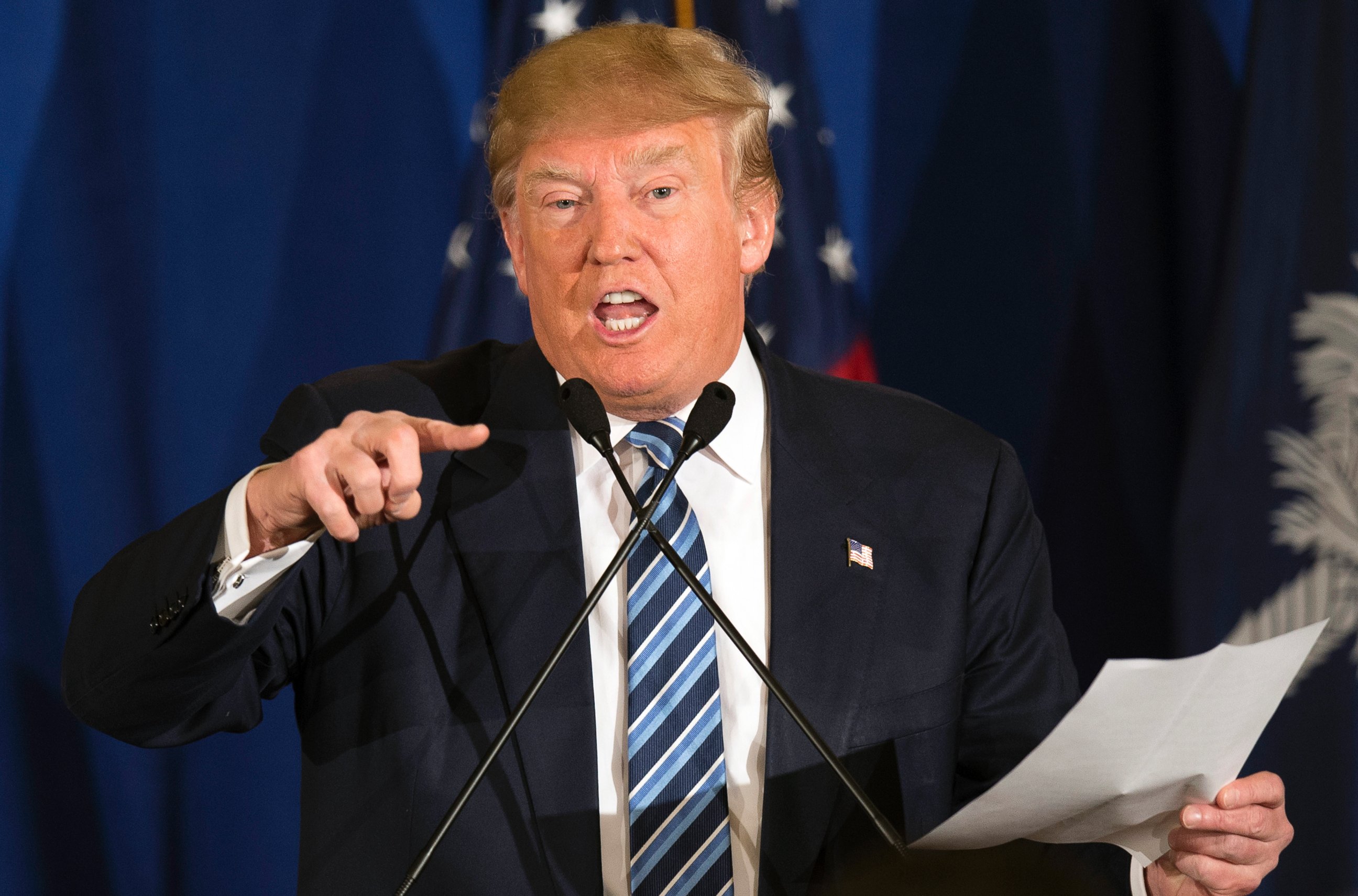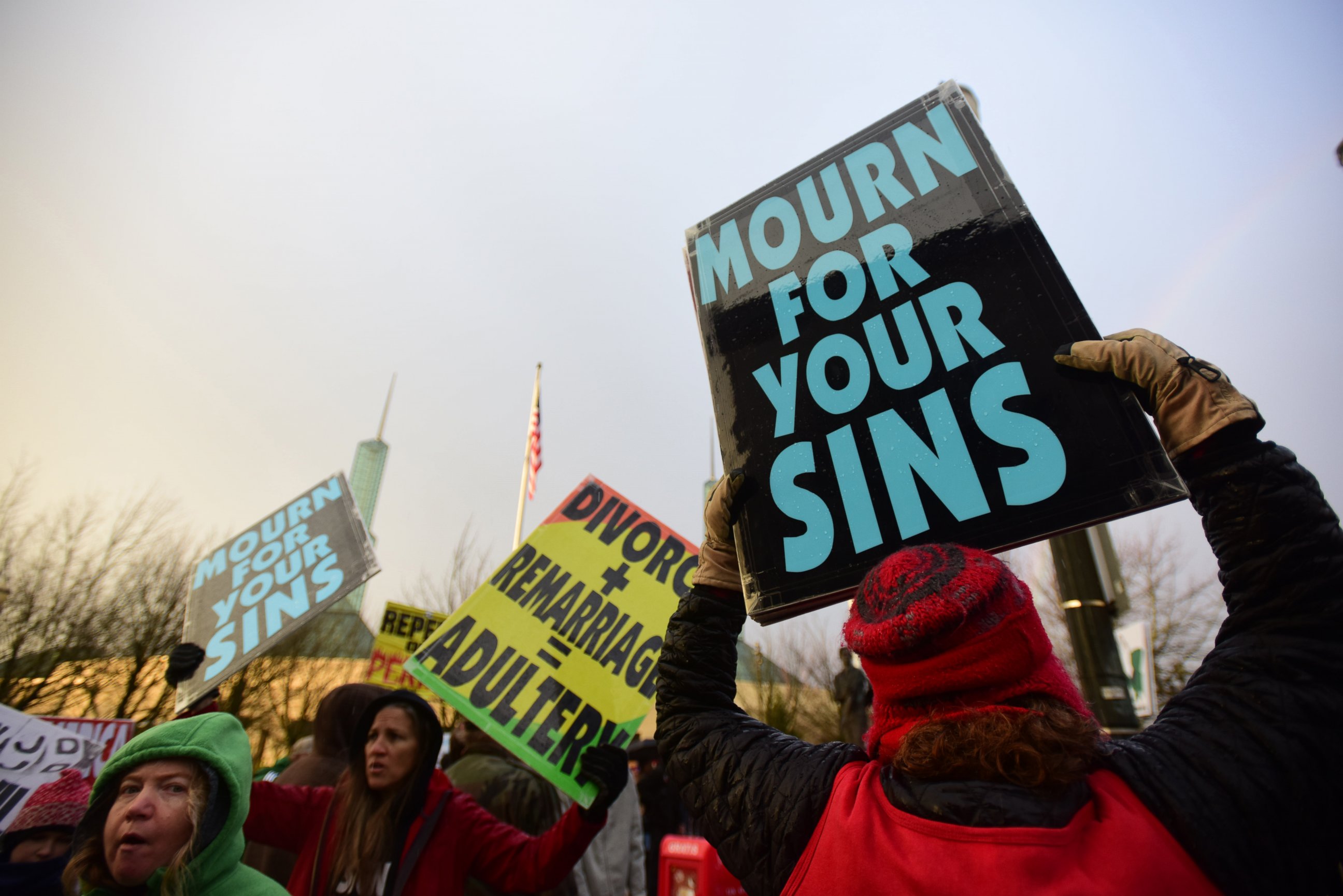Divisive Politics Cited as Fuel for Rise in Hate Groups
The Southern Poverty Law Center has released new findings on the latest groups.

— -- The number of hate groups in the United States jumped last year, fueled partly by divisive political rhetoric, according to a watchdog group.
Such groups increased nearly 14 percent to 892 in 2015 from 784 the year before, the Southern Poverty Law Center (SPLC), a hate group-monitoring organization, said in its annual report this week. SPLC tracks groups that include neo-Nazis, white supremacists and anti-religious groups, among others.
The Alabama-based legal advocacy group says the lethal terror attacks that dotted 2015, such as the attack at a historic black church in Charleston, South Carolina, and the shooting in San Bernardino, California, as well the political fallout, contributed to the increase.

Politics of Words
Responses to some of the attacks, particularly those involving radical Islamists, prompted an increase in anti-Muslim groups, SPLC writer Ryan Lenz says.
"For the past couple of years, as political rhetoric has increasingly taken up ideas that have a home on the radical right, more and more these groups are feeling validated in their positions," Lenz told ABC News.
"Once ideas about registering Muslims become a part of the political dialogue ... [that] does a certain bit to provide energy and momentum to the movement.”
Following the Leaders
The 2016 presidential campaign is "fraught with enormous hatred, enormous rage" that originates with some of the political leadership, Lenz said.
"Partially, it's a psychological game because it makes people feel that it’s OK to hold these positions.
"I think someone like Donald Trump has been a boon for the racist right. They see in him a candidate who is an answer to their questions and concerns about race in America but more specifically they see in him an answer to their feelings of white disenfranchisement," he said.

While Trump's push to ban Muslims temporarily from entering the United States and to build of a wall between the United States and Mexico are among the clearest examples, he is not the only candidate Lenz thinks is guilty of fueling potentially dangerous fires.
"It's not specifically Trump, but I think Trump is the loudest of them all right now," Lenz said.
Trump's campaign team did not immediately return ABC News' requests for comment.
"Nobody expected that we'd have a presidential race right now in which candidates are espousing ideas that are horrendous, not only white nationalist, but white supremacist," he said.
Not Just Empty Talk
The jump in active hate groups, while concerning, is less surprising than the level of activity tied to the groups.
"This last annual period has been particularly remarkable due to the sheer volume of rhetoric of hate and the violence associated with both," Lenz said.
His research shows a jump in anti-Muslim groups in 2015, Lenz said, as well as anti-LGBT groups that he links to the refusal of Kim Davis, a Kentucky county clerk who refused to issue marriage licenses because of her opposition to same-sex marriages.




